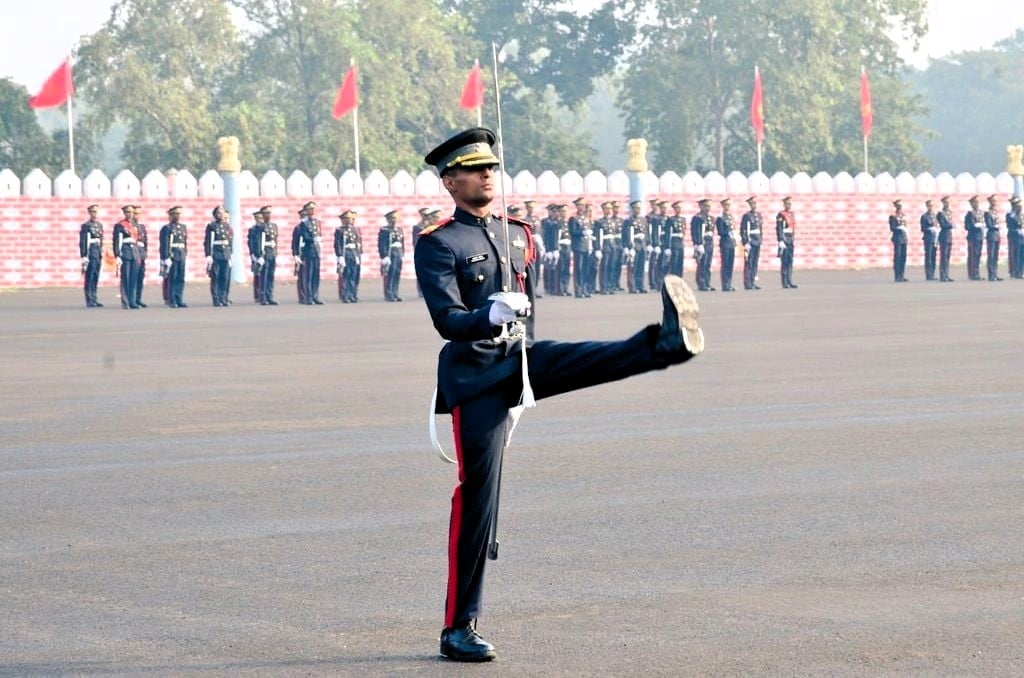Preparing for defence exams such as the National Defence Academy (NDA), Combined Defence Services (CDS), Air Force Common Admission Test (AFCAT), Military Nursing Service (MNS), and the Services Selection Board (SSB) Interview is a significant challenge. These exams demand rigorous preparation and a high level of dedication, often leading to increased stress among aspirants. Stress is a natural response and can motivate individuals to strive harder for their goals. However, in a highly competitive environment, students often face overwhelming physical, emotional, and psychological pressure. Understanding and managing this stress management strategies for students preparing for defence exams is crucial for maintaining overall well-being and achieving success.
Understanding Stress in Defence Exam Preparation
The Nature of Stress
Stress is a natural reaction to challenging situations and can serve as a powerful motivator. However, excessive stress can lead to adverse effects on both mental and physical health. For students preparing for defence exams, stress often stems from high expectations, the pressure to succeed, and the intense preparation required.
Causes of Stress Among Defence Aspirants
- Anticipating Outcomes: Worrying about the results can cause significant anxiety.
- Lack of Concentration: Difficulty in focusing due to overwhelming thoughts.
- Overthinking: Excessive analysis of every detail and possible outcome can lead to mental exhaustion.
Impact of Stress
Research indicates that chronic stress can impair cognitive and emotional functioning, weaken the immune system, and increase the risk of mental health issues such as depression. Therefore, adopting effective stress management strategies is essential for maintaining a balanced life and enhancing exam performance.
Effective Stress Management Strategies
1. Engage in Creative Hobbies and Interests
Engaging in creative activities can provide a much-needed break from intense study sessions and help relax the mind. Hobbies like painting, writing, playing a musical instrument, or gardening can be incredibly therapeutic. These activities not only offer relaxation but also improve time management skills, which are crucial for balancing study and leisure.
Benefits of Creative Hobbies
- Relaxation: Reduces mental fatigue and provides a sense of calm.
- Skill Development: Enhances creativity and problem-solving skills.
- Preparation for SSB Interview: Hobbies and interests are often discussed during the SSB interview, making them beneficial for overall preparation.
2. Spiritual Growth
Practices that promote spiritual growth, such as meditation, yoga, and mindfulness, can significantly reduce stress levels. Spiritual growth involves developing self-awareness, recognizing one’s purpose, and connecting with the inner self, which can lead to a more meaningful and balanced life.
Benefits of Spiritual Practices
- Self-Awareness: Helps in understanding personal strengths and weaknesses.
- Goal Clarity: Focuses on what is truly important, reducing distractions.
- Emotional Stability: Provides tools to manage stress and anxiety effectively.
3. Goal Clarity
Having clear, well-defined goals can greatly reduce uncertainty and stress. It is important for defence aspirants to know what they are working towards and why. This clarity helps maintain motivation and focus, making the preparation process more structured and less stressful.
Steps to Achieve Goal Clarity
- Define Objectives: Clearly outline what you aim to achieve.
- Create a Roadmap: Develop a step-by-step plan to reach your goals.
- Regular Review: Periodically assess progress and adjust plans as needed.
4. Decluttering the Mind
A cluttered mind, filled with excessive thoughts and worries, can hinder concentration and increase stress. Decluttering involves clearing the mind of unnecessary distractions and focusing on the present. Practicing mindfulness techniques such as deep breathing and meditation can help achieve this clarity.
Techniques for Decluttering the Mind
- Mindfulness Meditation: Focuses on the present moment, reducing stress and enhancing concentration.
- Deep Breathing Exercises: Helps calm the mind and reduce anxiety.
- Journaling: Writing down thoughts and worries to gain perspective and clarity.
5. Trust the Process
Trusting the process involves having faith in your preparation efforts and understanding that while outcomes are beyond control, your efforts are not. Focusing on doing your best in the present moment, rather than worrying about the future, can reduce stress and improve performance.
How to Trust the Process
- Focus on Effort, Not Outcome: Concentrate on what you can control—your preparation and effort.
- Accept Setbacks: View failures as learning opportunities rather than as defeats.
- Stay Present: Avoid overthinking about future results and stay focused on current tasks.
Stress Management Strategies : Practical Tips
Time Management
Effective time management is crucial for balancing study and relaxation. Creating a study schedule that includes regular breaks can prevent burnout and maintain productivity.
Time Management Techniques
- Pomodoro Technique: Break study sessions into 25-minute intervals followed by a 5-minute break.
- Prioritize Tasks: Focus on high-priority tasks first to manage time efficiently.
- Avoid Multitasking: Concentrate on one task at a time to improve focus and reduce stress.
Physical Activity
Regular physical exercise can help manage stress by releasing endorphins, which are natural stress relievers. Incorporating activities like running, swimming, or even brisk walking into your daily routine can improve both physical and mental health.
Benefits of Physical Activity
- Improves Mood: Enhances overall mood and reduces symptoms of anxiety and depression.
- Boosts Energy Levels: Increases stamina and energy, helping you stay focused during study sessions.
- Promotes Better Sleep: Physical activity can help regulate sleep patterns, essential for effective preparation.
Healthy Eating
Maintaining a balanced diet is essential for physical and mental well-being. A diet rich in fruits, vegetables, lean proteins, and whole grains can enhance cognitive function and reduce stress.
Tips for Healthy Eating
- Regular Meals: Avoid skipping meals to maintain energy levels.
- Hydration: Drink plenty of water to stay hydrated.
- Limit Caffeine and Sugar: Excessive caffeine and sugar can increase anxiety and disrupt sleep.
Support System
Having a strong support system of family, friends, and mentors can provide emotional stability and practical advice. Sharing your concerns and seeking guidance can alleviate feelings of isolation and stress.
Building a Support System
- Communicate Openly: Share your feelings and challenges with trusted individuals.
- Seek Professional Help: Consider counseling or therapy if stress becomes overwhelming.
- Join Study Groups: Collaborating with peers can provide motivation and reduce the pressure of solitary study.
Rest and Relaxation
Adequate rest and relaxation are essential for maintaining mental and physical health. Ensure you get enough sleep and take time to relax and unwind.
Tips for Rest and Relaxation
- Regular Sleep Schedule: Maintain a consistent sleep routine.
- Relaxation Techniques: Practice activities like reading, listening to music, or taking a walk to unwind.
- Limit Screen Time: Reduce exposure to screens, especially before bedtime, to improve sleep quality.
Table: Stress Management Strategies and Their Benefits
| Strategy | Benefits |
|---|---|
| Creative Hobbies | Relaxation, skill development, SSB interview readiness |
| Spiritual Growth | Self-awareness, goal clarity, emotional stability |
| Goal Clarity | Reduced uncertainty, structured preparation, increased motivation |
| Decluttering the Mind | Improved concentration, reduced anxiety, enhanced focus |
| Trusting the Process | Reduced future anxiety, increased present moment focus, learning from setbacks |
| Time Management | Prevents burnout, maintains productivity |
| Physical Activity | Improves mood, boosts energy, promotes better sleep |
| Healthy Eating | Enhanced cognitive function, reduced stress, sustained energy levels |
| Support System | Emotional stability, practical advice, reduced isolation |
| Rest and Relaxation | Improved sleep quality, mental rejuvenation, physical recovery |
By integrating these stress management strategies into their daily routine, students preparing for defence exams can effectively manage stress and enhance their chances of success.
Conclusion
Preparing for defence exams is undoubtedly challenging, but effective stress management strategies can significantly improve the experience. Engaging in creative hobbies, focusing on spiritual growth, achieving goal clarity, decluttering the mind, and trusting the process are all vital steps towards reducing stress and enhancing performance. Additionally, practical tips such as effective time management, regular physical activity, healthy eating, a strong support system, and adequate rest and relaxation are essential for maintaining overall well-being. By adopting these stress management strategies, defence aspirants can navigate their preparation journey with resilience and confidence, ultimately achieving their goals.
FAQs
1. Why is stress management important for students preparing for defence exams?
Stress management is crucial because excessive stress can impair cognitive and emotional functioning, weaken the immune system, and lead to mental health issues such as anxiety and depression. Effective stress management helps maintain overall well-being, enhances focus, and improves exam performance.
2. How can creative hobbies help in managing stress?
Engaging in creative hobbies like painting, writing, playing musical instruments, or gardening provides a break from intense study sessions, relaxes the mind, and reduces mental fatigue. These activities also enhance creativity and problem-solving skills, which are beneficial during the SSB interview.
3. How does spiritual growth help in reducing stress?
Spiritual growth involves developing self-awareness, recognizing one’s purpose, and connecting with the inner self. Practices such as meditation, yoga, and mindfulness promote emotional stability, goal clarity, and a sense of peace, which can significantly reduce stress levels.
4. What is the role of goal clarity in managing stress?
Having clear and well-defined goals reduces uncertainty and stress by providing a structured roadmap for preparation. It helps maintain motivation and focus, minimizes ambiguity, and boosts confidence, thereby improving overall performance.
5. How can decluttering the mind improve concentration and reduce stress?
Decluttering the mind involves clearing unnecessary thoughts and focusing on the present moment. Techniques such as mindfulness meditation, deep breathing exercises, and journaling help create a sense of calm and clarity, improving concentration and reducing stress and anxiety.










